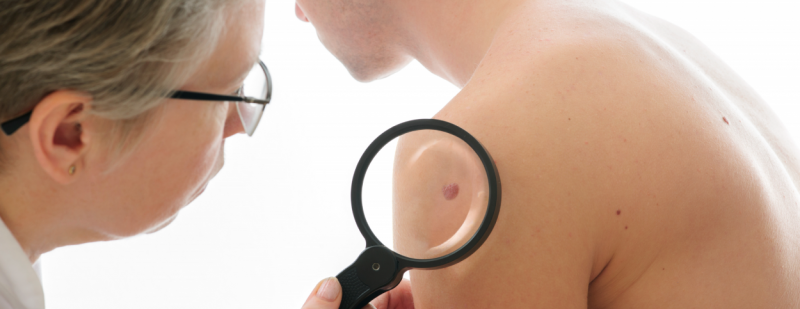Most people know that their dermatologist can help them look younger with treatments like Radiesse and Botox and help them fight skin conditions like acne, but did you know your dermatologist could also save your life?
Regular skin cancer screenings are the key to diagnosing and treating cancers before they spread. If you are overdue for a skin cancer screening, here are some of the reasons why you should contact your dermatologist today.
Types of Skin Cancer
Your dermatologist can diagnose all types of skin cancer, including pre-cancerous actinic keratosis spots, basal cell carcinomas, squamous cell carcinomas, and melanoma. Melanoma is the rarest form of skin cancer, but according to the Skin Cancer Foundation, it is responsible for 75% of skin cancer deaths. It is the sixth most common form of cancer in the United States and takes a life about once an hour.
Of the most common cancers in the country, melanoma is the only kind that is increasing. For these reasons, dermatologist screenings for melanoma are especially important; early diagnosis dramatically improves the effectiveness of treatment.
Screening Procedure
Skin cancer screenings are simple, non-invasive procedures. Your dermatologist will examine your skin for signs of cancer, such as moles with discolorations or irregular borders, scaly patches, and lesions. The screening generally takes about 10 minutes.
If the dermatologist notes an area of concern, a follow-up biopsy may be necessary to determine if cancer is present. Your dermatologist will tell you how often you should have a skin cancer screening based on your health history, skin type, and other risk factors.
Skin Cancer Prevention
In addition to regular screenings, ask your dermatologist for other ways you can reduce your risk of skin cancer. Self-screening examinations can play an important role in identifying suspicious skin changes between dermatology appointments. Wearing sunscreen daily and protecting your face from the sun with a hat may also help.
Your dermatologist can tell you if there are other steps you should take based on your risk factors.
Looking to get a Skin Cancer Screening?
We have multiple locations throughout the country, so fill out our simple online form to get in touch with us. One of our local team members will reach out to you shortly to answer your questions or schedule an appointment for you to visit us soon.
Find a location near me
or

